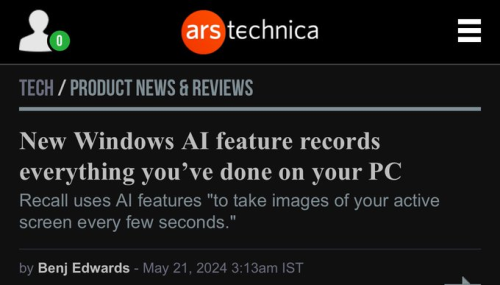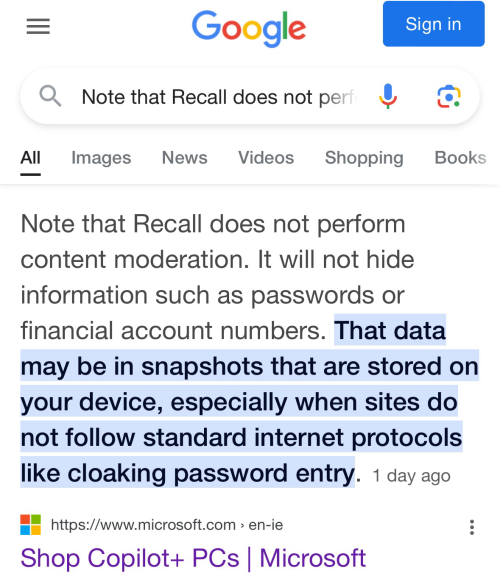Technicallybluedelusion - Untitled
More Posts from Technicallybluedelusion and Others
Skip Google for Research
As Google has worked to overtake the internet, its search algorithm has not just gotten worse. It has been designed to prioritize advertisers and popular pages often times excluding pages and content that better matches your search terms
As a writer in need of information for my stories, I find this unacceptable. As a proponent of availability of information so the populace can actually educate itself, it is unforgivable.
Below is a concise list of useful research sites compiled by Edward Clark over on Facebook. I was familiar with some, but not all of these.
⁂
Google is so powerful that it “hides” other search systems from us. We just don’t know the existence of most of them. Meanwhile, there are still a huge number of excellent searchers in the world who specialize in books, science, other smart information. Keep a list of sites you never heard of.
www.refseek.com - Academic Resource Search. More than a billion sources: encyclopedia, monographies, magazines.
www.worldcat.org - a search for the contents of 20 thousand worldwide libraries. Find out where lies the nearest rare book you need.
https://link.springer.com - access to more than 10 million scientific documents: books, articles, research protocols.
www.bioline.org.br is a library of scientific bioscience journals published in developing countries.
http://repec.org - volunteers from 102 countries have collected almost 4 million publications on economics and related science.
www.science.gov is an American state search engine on 2200+ scientific sites. More than 200 million articles are indexed.
www.pdfdrive.com is the largest website for free download of books in PDF format. Claiming over 225 million names.
www.base-search.net is one of the most powerful researches on academic studies texts. More than 100 million scientific documents, 70% of them are free
This is not a rejection of the Internet or your precious digital connections. If anything, you'll find you rediscover your digital agency and how it's been stripped from you! You'll engage in new ways online that put you in the drivers' seat. You'll also find your values start to shift. You'll stop asking if a service can do something for you, and instead ask what it wants from you in return--and whether that's a price worth paying, especially if it's "free."
It's also not a course for those deep into the InfoSec world (Information Security). I won't teach you how to go dark, how to move around the web entirely anonymously. But I will teach you how to take steps toward that direction, so that the path is available to you once these short weeks are up.
To that end, I will recommend systems and services that some people who are deep into infosec won't like. Internet nerds have deep and well informed opinions and controversies erupt all the time. For instance, some people recently are angry at Mozilla for some changes they are making, so they recommend not using Firefox. That's just one example. Some will be upset to find that I am still recommending Firefox -- among many other options.
Why? For one, I want to recommend user-friendly systems of many stripes. I will never tell you to just use one thing: the ball is in your court! I'll also tell you when there are concerns, some of which you may care about and others you won't. I don't think there is (or should be) one system to rule them all. There should be many options. We should use many of them, instead of just one. It's way more freeing to do so.
I also want to get you used to something new: moving. Jumping ship. Right now, we think of moving from one service to another like moving a house you've lived in for fifty years. It's a huge burden, and exhausting to even consider. This forces a kind of lock-in where users never want to leave. Tech companies count on this. Academics hand-wring over this form of lock-in, especially in social media.
But once you get started moving your data around, taking agency in how you work the web, you'll see it's actually much easier than you thought. That way, you might move to a new browser and not like it very much (for whatever reason)-- and instead of going back to Google, you'll try something new. Easy peasy. No moving company involved.
I'll clue you in to a different way to use the web. You'll pay more attention to tech gossip. You'll know if a company is doing something nefarious or making a change. You'll know what to do if so. You'll already have one foot out the door anyway.
That's because Opting Out isn't just about leaving systems we don't like -- it's about opting in to systems and communities we value instead.
Literal definition of spyware:

Also From Microsoft’s own FAQ: "Note that Recall does not perform content moderation. It will not hide information such as passwords or financial account numbers. 🤡


When people can accept dragons, giants and fucking ice zombies in a show but black people is too far for their imagination to stretch 😂😂😂
-
 j0rdyns liked this · 1 week ago
j0rdyns liked this · 1 week ago -
 gingilocks101 liked this · 2 months ago
gingilocks101 liked this · 2 months ago -
 brambleberrybush liked this · 3 months ago
brambleberrybush liked this · 3 months ago -
 annaan53h liked this · 6 months ago
annaan53h liked this · 6 months ago -
 beckykh liked this · 6 months ago
beckykh liked this · 6 months ago -
 ioannemos liked this · 9 months ago
ioannemos liked this · 9 months ago -
 catnip-and-caprice liked this · 9 months ago
catnip-and-caprice liked this · 9 months ago -
 waterloggedgarden liked this · 9 months ago
waterloggedgarden liked this · 9 months ago -
 quonunc reblogged this · 9 months ago
quonunc reblogged this · 9 months ago -
 potatohasarrived reblogged this · 10 months ago
potatohasarrived reblogged this · 10 months ago -
 potatohasarrived liked this · 10 months ago
potatohasarrived liked this · 10 months ago -
 fuzzytheoristtyrant liked this · 10 months ago
fuzzytheoristtyrant liked this · 10 months ago -
 parkjihyo liked this · 10 months ago
parkjihyo liked this · 10 months ago -
 brah3280 liked this · 10 months ago
brah3280 liked this · 10 months ago -
 dadstarkk reblogged this · 10 months ago
dadstarkk reblogged this · 10 months ago -
 jade-harley-lesbian liked this · 1 year ago
jade-harley-lesbian liked this · 1 year ago -
 a-for-apocalypse liked this · 1 year ago
a-for-apocalypse liked this · 1 year ago -
 cabagbe reblogged this · 1 year ago
cabagbe reblogged this · 1 year ago -
 iudexmilkman liked this · 1 year ago
iudexmilkman liked this · 1 year ago -
 piedmontperk reblogged this · 1 year ago
piedmontperk reblogged this · 1 year ago -
 falco353 reblogged this · 1 year ago
falco353 reblogged this · 1 year ago -
 bubbl liked this · 1 year ago
bubbl liked this · 1 year ago -
 diantheee liked this · 1 year ago
diantheee liked this · 1 year ago -
 snow-leopard-777 liked this · 1 year ago
snow-leopard-777 liked this · 1 year ago -
 ratdelandsubsgrus liked this · 1 year ago
ratdelandsubsgrus liked this · 1 year ago -
 scattered-amongst-the-stars liked this · 1 year ago
scattered-amongst-the-stars liked this · 1 year ago -
 psychorangersfan reblogged this · 1 year ago
psychorangersfan reblogged this · 1 year ago -
 dimonicwrecker liked this · 1 year ago
dimonicwrecker liked this · 1 year ago -
 rlcinderella reblogged this · 1 year ago
rlcinderella reblogged this · 1 year ago -
 rlcinderella liked this · 1 year ago
rlcinderella liked this · 1 year ago -
 inconstantsearchofperfection reblogged this · 1 year ago
inconstantsearchofperfection reblogged this · 1 year ago -
 decadentbatbagelscissors liked this · 1 year ago
decadentbatbagelscissors liked this · 1 year ago -
 thomasblintmasterofnone reblogged this · 1 year ago
thomasblintmasterofnone reblogged this · 1 year ago -
 thomasblintmasterofnone liked this · 1 year ago
thomasblintmasterofnone liked this · 1 year ago -
 animalluver8153 reblogged this · 1 year ago
animalluver8153 reblogged this · 1 year ago -
 hercule-poirot reblogged this · 1 year ago
hercule-poirot reblogged this · 1 year ago -
 the-permanent-blur liked this · 1 year ago
the-permanent-blur liked this · 1 year ago
